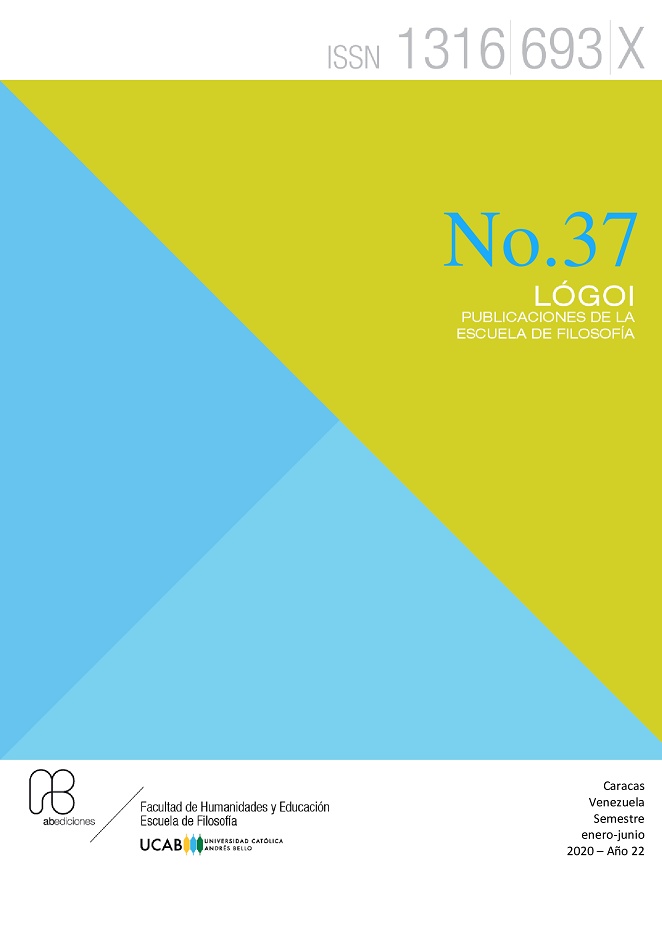The aim of this article is to analyze the episode “Hated in the nation” of Black Mirror and from a philosophical point of view, the phenomenon of “shitstorms”. For this purpose, the relationship between the loss of distance in social networks and moral judgment will be examined. With this, the paper seeks to show that “shitstorms” cannot be considered authentic ways to do justice and to warn about some of the dangers they can lead to.
DOI:
https://doi.org/10.62876/lr.vi37.4545Keywords:
Shitstorms, Moral Judgment, Distance, Social Networks, Black MirrorAbstract
This article aims to analyze, based on the episode “Hated in the nation” of Black Mirror, the phenomenon of digital lynchings from a philosophical point of view. To this end, the relationship between the loss of distance in social networks and moral judgment will be examined. With this, the aim is to show that digital lynchings cannot be considered authentic ways of doing justice and to warn about some of the dangers to which they can lead.
Downloads
References
Agamben, Giorgio, entrevista por Álvaro Cortina, 25 de junio de 2014 en El Cultural. Disponible en: https://www.elcultural.com/noticias/letras/Giorgio-Agamben-La-filosofia-no-es-una-disciplina-la-filosofia-es-una- intensidad/6424
Agamben, Giorgio: “¿Qué es lo contemporáneo?” en Desnudez, (Buenos Aires, Adriana Hidalgo, 2009), p. 21 y ss.
Benjamin, Walter: La obra de arte en la época de su reproductibilidad técnica, (México, Ítaca, 2003), p. 47.
Black Mirror: Porvenir y tecnología, (Barcelona, UOC, 2017).
Debord, Guy: La sociedad del espectáculo, (Valencia, Pre-Textos, 2012), p. 38.
Entre los estudios más recientes se encuentra, por ejemplo, el de Jorge Martínez-Lucena y Javier Barraycoa (eds.):
Han, Byung-Chul: La sociedad de la transparencia, (Barcelona, Herder, 2013), p. 12.
Lévinas, Emmanuel: "Filosofía, justicia y amor” en Entre nosotros, op. cit., p. 130.
Lévinas, Emmanuel: "¿Un Dios hombre?" en Entre nosotros, op. cit., p. 75. Cursivas añadidas.
Lévinas, Emmanuel: "Del Uno al Otro. Trascendencia y Tiempo" en Entre nosotros, op. cit., p. 175.
Lévinas, Emmanuel: "Determinación filosófica de la idea de cultura" en Entre nosotros, (Valencia, Pre-Textos, 2001), p. 216.
Lévinas, Emmanuel: “Libertad y mandato” en La realidad y su sombra, op. cit., p. 76.
Lévinas, Emmanuel: De la existencia al existente, (Madrid, Arena Libros, 2000), p. 78. Cursivas añadidas.
Lévinas, Emmanuel: De otro modo que ser o más allá de la esencia, 4ª edición, Salamanca, Sígueme, 2003, p. 239.
Lévinas, Emmanuel: La realidad y su sombra, (Madrid, Trotta, 2001), p. 48.
Nietzsche, Friedrich: Crepúsculo de los ídolos, (Madrid, Alianza, 2002), p. 58.
Nietzsche, Friedrich: La genealogía de la moral, (Madrid, Alianza, 2005), “Tratado tercero”, 15, p. 165.
Nietzsche, Friedrich: Más allá del bien y del mal, “Sentencias e interludios”, 146, (Madrid: Alianza, 2005), p. 114.
Redacción La República. “Twitter: usuario explica el oscuro significado del título de ‘Black Mirror’” La República, 10 de enero de 2018. Disponible en: https://larepublica.pe/tendencias/1169258-twitter-usuario-explica-el-oscuro- significado-del-titulo-de-black-mirror
Ronson, Jon: “How One Stupid Tweet Blew Up Justine Sacco's Life”, New York Times, 12 de febrero de 2015. Disponible en: https://www.nytimes.com/2015/02/15/magazine/how-one-stupid-tweet-ruined-justine-saccos- life.html
Published
How to Cite
Issue
Section
License
Copyright (c) 2022 Array

This work is licensed under a Creative Commons Attribution-NonCommercial-ShareAlike 4.0 International License.










.png)











